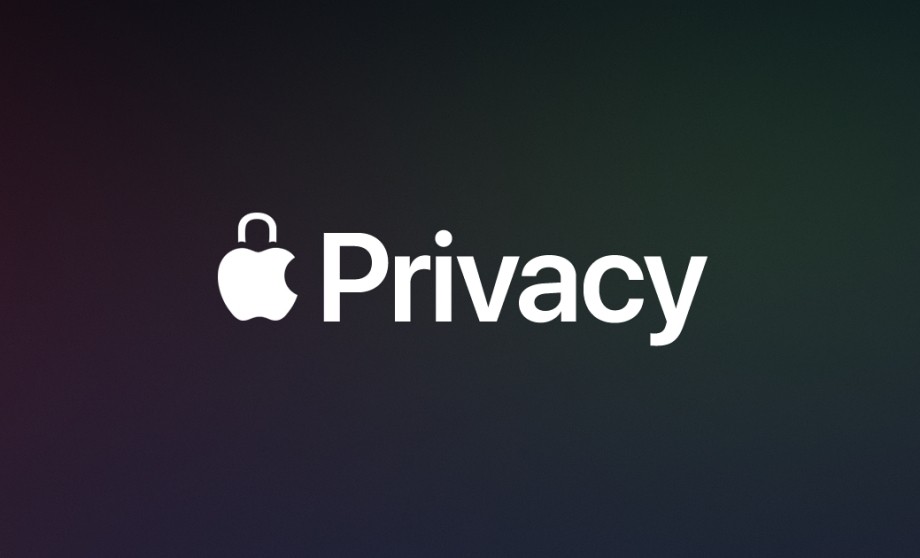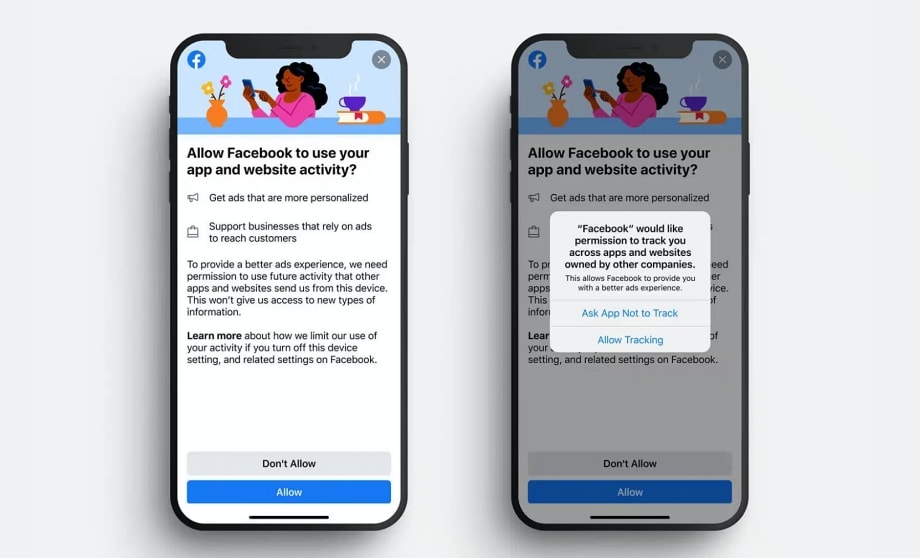iPhone users worldwide are enjoying the new iOS 14.5, Apple's latest operating system update, which delivers Unlock iPhone with Apple Watch, more diverse Siri voice options, and a new batch of emojis. This update comes alongside the iPadOS, the brand's tablet counterpart.
One of the significant updates that took the marketing industry by storm on iOS 14.5 is the new privacy control option that helps strengthen data security. Apple promised to take the first step in a new era of user-oriented privacy. But like any change in this world, not everyone is happy. Read on to learn more about this privacy update that changes the way digital marketers work.
What Is This Feature?
App Tracking Transparency is a new feature introduced in iOS 14.5 that allows users to prevent apps from tracking their usage involuntarily. It allows apps to display a pop-up notification that explains what data the app wants to collect and how developers will use it.
ATT is another step of Apple's push to be recognised as the platform of privacy. This new feature could prove significant for some users who concern about their digital footprint. If your iPhone is running the latest iOS update, there is nothing to do to gain access to this security feature.
ATT is a new feature introduced in iOS 14.5 that allows users to prevent apps from tracking their usage involuntarily.
Apple stated that allowing developers to collect data across apps has its pros and cons. The bright side is marketers, advertisers, website developers, and other service providers can utilise the data collected from consumers to analyse and offer back to them the best products and services.
But on the other hand, the user's identification data could be collected and exploited, even sold to a third party. Apple spoke out that consumers are not commercial products. The permission whether to allow apps to track and collect data should be the consumer's right.
Apple provides the SKAdNetwork and Private Click Measurement as options that do not require user permission because they do not track user data.

The Impact on Advertisers
Although better data privacy lets consumers rest easy at night, marketers who work most closely with online advertising, on the other hand, can feel the ripple effects and will have a hard time ahead of them.
Before the update, each application on iOS can collect user data by tracking the IDFA tag (Identifier For Advertisers), a means for remarketing and driving conversion. It also means the operating system has a centralised location for storing what permissions have been granted to which apps.
But with the ATT in place, many users are expected to opt for more privacy, choosing not to share data with brands they do not trust. Opting out will result in the IDFA identifier being set to zero. This will result in a scarce pool of data that marketers can work on in honouring Apple's data policies.
Many users are expected to opt for more privacy, choosing not to share data with brands they do not trust.
Here are the three big changes that advertisers should look out for in the ATT update:
The system will prompt the user when an app asks for consent to track data across platforms.
Changes in ads attribution let the user identify who bought the ad placement and where it comes from.
Added App Privacy section in each App Store page to clarify what data will be collected and which additional data they will top up.
To prevent developers who would not play by the new rule, Apple's App Store guidelines explicitly tells developers:
"You must receive explicit permission from users via the App Tracking Transparency APIs to track their activity."
As a social media and advertising platform, Facebook explained that Apple's approach would restrict the availability of ad targeting and metrics tools and potentially impact audience engagement.
"As more people upgrade to iOS 14.5, opted-out users will automatically be excluded from certain targetable audiences, which may result in decrease of audience sizes,"
Changes in Facebook Advertising
Facebook advertising has benefited from third-party data to tailor-made personalised content relevant to their target audience, to the point they almost forgot that such accurate data they work their precise targeting on is collected from the audience.
Facebook Audience Insight, for example, has almost any interest-based options you can imagine to target your potential consumers; mothers with newborn baby, mothers with 3-year-old baby, to mother with kindergarten-aged child.
Facebook has collected all this information bit by bit from third-party outside of the platform and let its AI analyse the data to group into distinct audience segments marketers can then work on with high precision.

Facebook advertising has benefited from third-party data to tailor-made personalised content relevant to their target audience, to the point they almost forgot that data is collected from the audience.
The 'decrease of audience sizes' will be more evident in Facebook's Audience Network ad placement. Marketers place their Facebook ads across websites and applications within the network and across all devices used to access them.
The effect will be noticeable when Facebook advertisers place their ads on the Audience Network; the ads will not reach the iOS 14.5 user segment who opt-out for more privacy until they allow the system to track them.
Not only will Facebook's ads revenue shrink, but businesses, especially SMEs, will also suffer the most from this change because the chances their ads can reach their target audience will decrease dramatically. Anyway, the full impact will depend, in part, on how many people choose to opt out of tracking with ATT.
On the Bright Side
Initially, there was concern that advertisers can no longer measure and optimise their iOS campaigns properly. Over time, this sentiment shifted as the industry embraced innovation to adapt to the age of privacy and retain some measurability.
Surprisingly, however, the IDFA would not become obsolete anytime soon. Early data compiled by mobile attribution company AppsFlyer suggests that opt-in rates are much higher than previously anticipated: 39% overall.
AppsFlyer suggests that opt-in rates are much higher than previously anticipated: 39% overall.
That’s good news for both marketers who want to make the most of their campaigns with more available, consented data, and end-users who prefer a more personalised experience and have given their explicit consent for it.
Therefore, there is no doubt that the market will further evolve by developing more strategies and improved experiences to further optimize the opt-in funnel.

Frequently Asked Questions
Is App Tracking Transparency required?
Since April 26th, all apps submitted to the App Store must have App Tracking transparency enabled. Unless specific permission is granted through a pop-up notification, companies won't be able to use the IDFA to track users' data.
What is IDFA?
The Identifier for Advertisers (IDFA) is a random device number that Apple assigns to users' devices. Advertisers use data to deliver tailored advertising. The IDFA can be used to track and identify a user without revealing personal information.
Is IDFA personal data?
The EU's General Data Protection Regulation states that cookies, IDFA, AAID, and other online devices are examples of personal data. It is highly likely that any data being processed in the online advertising environment falls within the definition of personal data due to this broad definition.
Should I turn off iPhone tracking?
iPhone users should not allow tracking to protect their data, said experts. Advertising isn't going to disappear for iPhone users, but they will likely experience less personalized ads.
Do Apple products spy on you?
Apple isn't suddenly snooping on your messages, and this switch stops it from scanning your photos. Apple vows it won't cave to government demands on what it will scan on a user's iPhone.
Does Android have app tracking transparency?
Google has said that Android 12 will feature a version of Apple's App Tracking Transparency. But with so few phones getting new versions of Android when they arrive, it likely won't affect ad rates in the long term.
Need Digital Marketing Aid for Your Own Brand?
Need a hand to withstand the tide of new privacy updates? Our team at Sphere Agency can help you adapt to the age of privacy and plan the most effective Digital Marketing Strategy that fits with your goal and KPI in the years to come. See our Digital Marketing Services and Contact us today!





